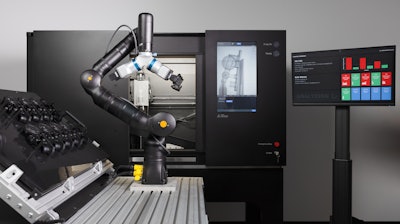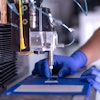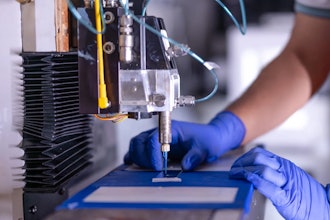
Lumafield, a developer of accessible X-ray CT technology, today announced it has closed a $35 million Series B funding round from new and existing investors, achieved a new AI-driven performance breakthrough, and appointed two executives to its board of directors.
The company has raised a total of $67.5 million to date, including a combined $32.5 million in its Seed and Series A funding rounds. Spark Capital led the Series B round, which also included participation from existing investors Lux Capital, Kleiner Perkins, Data Collective, and Future Shape.
Lumafield also announced the appointment of Victoria Holt and Santo Politi to the company's Board of Directors. Holt was previously CEO of Protolabs and is a member of the boards of directors of Waste Management, A.O. Smith, and Piper Sandler. Politi is Founder and General Partner of Spark Capital, where his investments have included Oculus, Twitter, Wayfair, and Plaid.
When Lumafield emerged from stealth in April 2022, it offered what it calls the world’s first accessible industrial X-ray CT platform. Lumafield’s Neptune industrial CT scanner is an order of magnitude less expensive than legacy systems, and it brought this powerful technology to engineering teams that had never been able to afford industrial CT before.
Now Lumafield has made its Neptune scanner more than 300X faster, allowing it to scale from one-off scans in product development labs all the way to serial inspection in high-volume manufacturing operations. Behind the speed increase is a significant development in artificial intelligence. CT scanners work by capturing a series of two-dimensional X-ray images from different angles, then reconstructing them into a 3D model using software. Lumafield’s AI allows the company’s reconstruction process to achieve the same high-quality results with fewer two-dimensional X-ray images, reducing the time required to run a scan.
New improvements in Lumafield’s software also make it possible to skip certain steps in the reconstruction process before performing automated analysis, which cuts processing time. As a result, scans that previously took several hours can now run in a minute or less, finally making industrial CT a practical technology for quality assurance on factory floors. Combined with factory automation systems, Lumafield’s scanner and software can inspect products at high volume, automatically flagging problems such as dimensional inaccuracies and the presence of pores and cracks.
“Industrial CT has been out of reach for most production lines—until now,” said Eduardo Torrealba, Lumafield Co-Founder and CEO. “With these speed improvements and Lumafield’s low price point, it’s now possible to implement 100% inspection with CT, catching invisible issues before they become costly problems.” A demo of Lumafield’s rapid scanning technology is available this week at IMTS in Chicago.
Visit Lumafield in the East Hall, Floor 3 at booth #135828 to experience the Neptune scanner and Voyager analysis software firsthand.






















